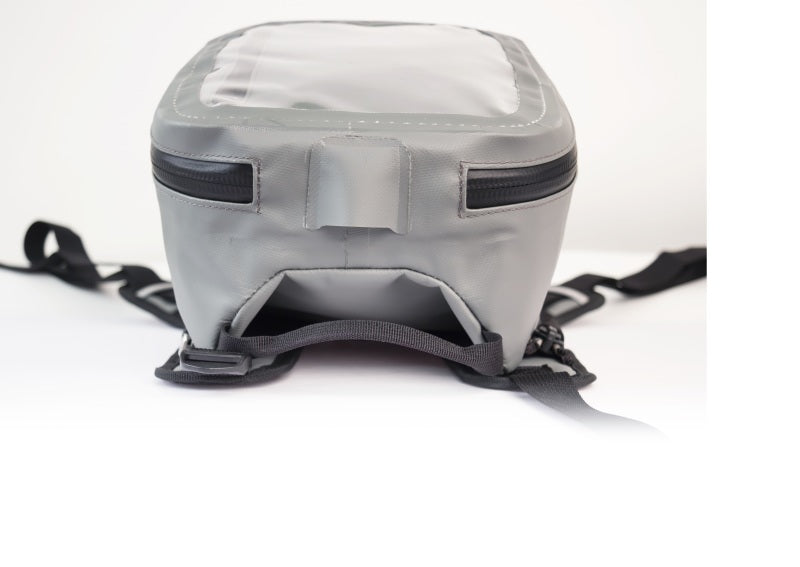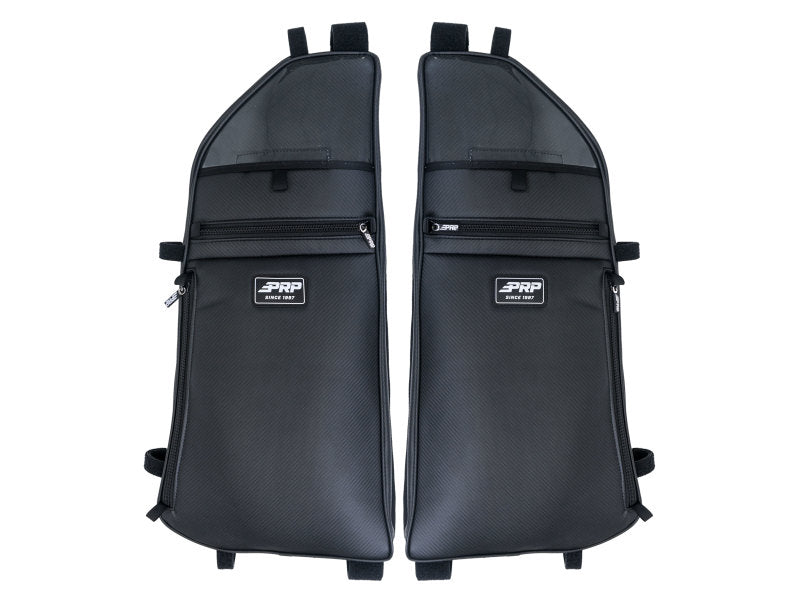Take care of your car's suspension system by checking tire pressure every month and tire tread every 1,000 miles. Regularly inspect shocks, struts, and joints for signs of wear like oil leaks or uneven tire wear. Also, make sure to maintain the power steering fluid properly.
By doing these things, you can make your suspension system last longer and avoid expensive repairs. Learn to spot worn-out parts, find damage signs, and keep your wheels aligned to keep your car running smoothly.
Key Takeaways
-
Check tire pressure monthly and maintain recommended levels to prevent uneven wear and suspension damage.
-
Inspect tire tread every month or 1,000 miles to ensure proper road grip and prevent suspension wear.
-
Regularly inspect shocks, struts, and joints for signs of wear, and replace them every 50,000 miles or as needed.
-
Avoid rough roads, slow down for speed bumps, and maintain proper tire pressure to reduce stress on the suspension system.
-
Check power steering fluid levels regularly and address any leaks or issues promptly to prevent damage to suspension parts.
Understanding Your Suspension System
Your car's suspension system is like a team of helpers that make your ride smooth and fun. It's made up of parts like shocks, springs, and tires that work together. When you drive, these helpers absorb bumps and holes in the road, so you don't feel them as much.
To keep your car running well, you need to check these helpers regularly. Look for signs of wear or damage. If you find a problem, fix it right away. Don't wait for small problems to become big headaches.
Your suspension system has many parts, including shocks, struts, and tires. They all work together to give you a smooth ride. By checking them often, you can avoid expensive repairs and stay safe on the road.
Regular checks can help you find problems before they become big issues. By taking care of your car, you can enjoy a smooth and safe ride for a long time.
Regular Tire Pressure Checks
Taking care of your car's tires is super important for its performance and safety. If your tire pressure is off, it can affect how your car handles and even hurt its suspension system. To keep your suspension system in top shape, you need to check your tire pressure regularly.
Remember these key points:
-
Check your tire pressure every month. This ensures your tires have the right amount of air.
-
Look at your car's manual to find the recommended tire pressure. This tells you how much air your tires need.
-
Low tire pressure is bad news. It can cause uneven wear on your tires and harm your suspension system.
-
Proper tire pressure keeps you safe and helps your suspension system last longer.
Inspecting Tire Tread Depth
You should check your tire tread every month or every 1,000 miles. This helps your tires work their best and keeps your car's suspension system from wearing out too fast. If your tires don't have enough tread, they can't grip the road well. This can hurt your suspension system.
Check your tire tread regularly to catch any problems early. If you don't, your tires might wear out unevenly. This can mean your car's wheels aren't aligned right.
If you check your tire tread often, you can find problems before they get big. This keeps your car's suspension system strong and healthy.
Signs of Worn Shocks and Struts
When your car's shocks and struts get old, you might feel it while driving. Here are some signs to look out for:
-
Oil leaks: If you see oil dripping from your shocks or struts, they need fixing.
-
Wobbly ride: If your car feels unsteady, especially when turning or braking, it might be the shocks and struts.
-
Bumpy ride: If your car vibrates or makes noise when you drive over bumps, the shocks and struts might be worn out.
-
Longer stopping time: If it takes longer to stop your car, the shocks and struts could be the problem.
Don't ignore these signs! Bad shocks and struts can cause more damage and make your car unsafe. By noticing these signs, you can fix the problem and make your car ride smoother and safer.
Power Steering Fluid Maintenance
When you drive, your car's power steering system helps you steer easily. But it needs a special fluid to work properly. If you don't check the fluid level regularly, you might notice it's harder to steer. This can also cause problems with your car's suspension, which can be expensive to fix.
The power steering fluid helps keep your car's suspension parts from getting damaged. If the fluid level is low, the system has to work harder, which can make the parts wear out faster.
You should also check the power steering belt, because it plays a big role in making the system work right.
If you take care of your power steering system, you can help extend the life of your car's suspension parts. Remember, neglecting the fluid can lead to costly repairs later on. So, make sure to check the fluid level regularly to keep your car running smoothly.
Protecting Suspension From Damage
To keep your car's suspension system strong and healthy, drive safely and check it regularly. This will help your car run smoothly.
Here's how to keep your suspension safe:
-
Watch out for rough roads and potholes. They can hurt your suspension, so try to avoid them.
-
Slow down for speed bumps. Hitting them too fast can put too much stress on your suspension.
-
Check your tire pressure. If it's too low, it can put extra stress on your suspension.
-
Get your wheels aligned. This helps your tires wear evenly and reduces the risk of suspension damage.
Inspecting Joints and Bearings
When you check your car's joints and bearings, you can make sure they're working correctly. This helps prevent other parts from wearing out too quickly. Joints and bearings are important for your car's suspension system to work well.
During maintenance, don't forget to check these parts because they can wear out easily. If they're worn out or damaged, it can affect how your car handles and performs. Check them when you get your oil changed to prevent problems.
Keeping joints and bearings in good shape is crucial for a smooth ride. By checking regularly, you can find small issues before they become big problems, saving you time and money. Remember, regular checks keep your car's suspension system running well and prevent costly repairs.
Replacing Worn Suspension Parts
Replacing worn-out parts in your car's suspension system is super important. If you don't, it can cause trouble for other parts of your car and make it drive badly.
To keep your suspension system running smoothly, remember to:
-
Swap out old shocks and struts every 50,000 miles so your car rides comfortably and stays stable.
-
Fix leaks in your shocks or struts right away to stay safe on the road.
-
Check and replace worn-out parts like bushings and joints to prevent more damage and keep your car running well.
-
Check your suspension system after an accident to make sure everything is okay and fix any problems to stay safe on the road.
Benefits of Regular Maintenance
Taking care of your car's suspension system is super important. It helps your car last longer, stay safe, and handle well on the road.
When you drive, your suspension system absorbs bumps and helps you steer smoothly. If you don't take care of it, you might need expensive repairs later. But if you keep it in good shape, you'll save money and have a safer ride.
A well-maintained suspension system makes your car handle smoothly, giving you a comfortable ride and helping you avoid accidents.
Extending Suspension Component Life
Taking good care of your car's suspension system can save you money and keep you safe on the road. If you don't check and fix problems regularly, you might need to pay for expensive repairs.
To keep your suspension system in top shape, follow these simple tips:
-
Check and replace worn-out shocks and struts to keep your car running smoothly.
-
Avoid driving on rough roads to prevent damage to your suspension.
-
Get a mechanic to check your tire alignment and balance to take some pressure off your suspension.
-
Watch out for signs of suspension problems, like bouncing, swaying, or uneven tire wear, and fix them fast to avoid more damage.
Frequently Asked Questions
How to Keep Car Suspension Healthy?
You keep your car's suspension healthy by regularly checking tire pressure and tread depth, addressing signs of issues promptly, and following the manufacturer's replacement intervals for shock absorbers and struts.
How to Maintain Suspension on Car?
You maintain your car's suspension by regularly checking tire pressure and tread depth, scheduling routine inspections, addressing uneven tire wear, replacing shocks and struts, and driving carefully to minimize stress on suspension components.
How Do You Prevent Car Suspension Problems?
You prevent car suspension problems by checking tire pressure and tread depth regularly, avoiding potholes, and scheduling inspections every 15,000 miles to catch issues early, ensuring a smooth and safe ride.
How to Strengthen Car Suspension?
You can strengthen your car's suspension by upgrading to high-performance shocks and struts, stiffer coil springs, and polyurethane bushings, which will improve handling, stability, and responsiveness, giving you better control on the road.





